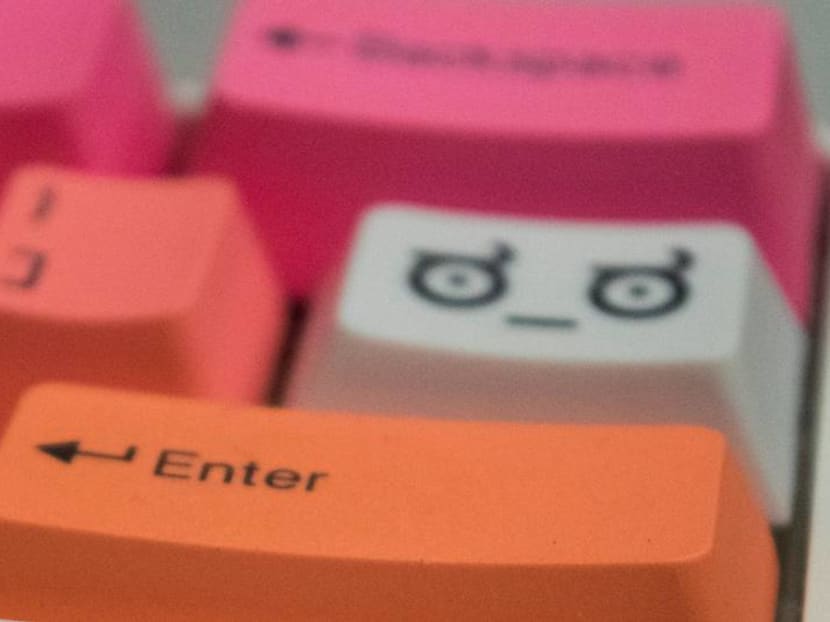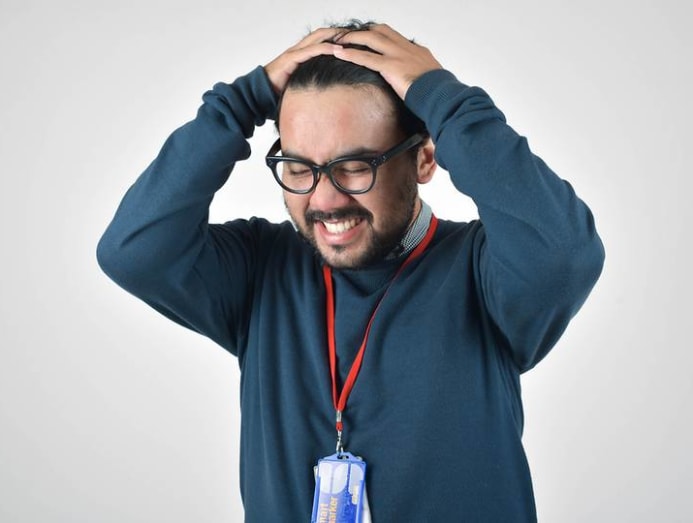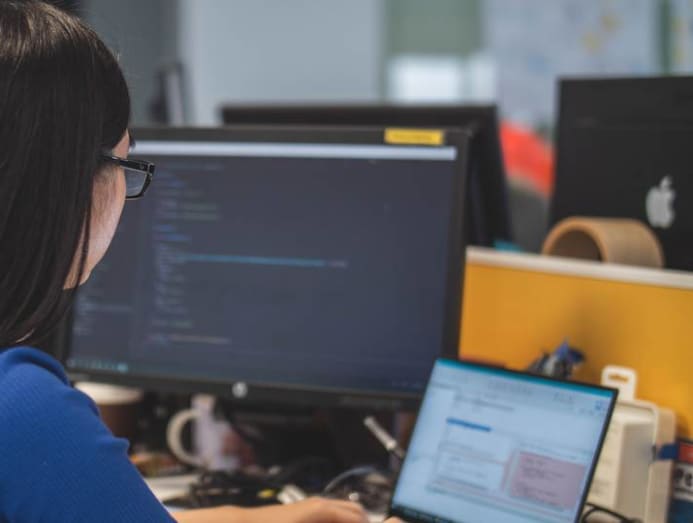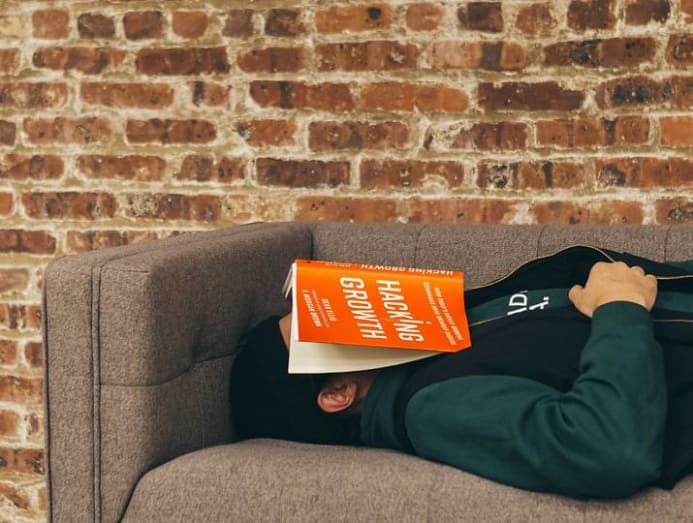Commentary: Facing disrupted futures, Singapore’s youth must put their mental health first
Advertisement
Commentary
Commentary: Facing disrupted futures, Singapore's youth must put their mental wellness starting time
Rather than neglect our mental health to arrive kickoff in a race that never ends, allow'southward prioritise information technology so nosotros can keep running this marathon, says Ng Chia Wee.

(Photo: Unsplash/Paul Esch-Laurent)
17 October 2022 06:13AM (Updated: 09 Feb 2022 10:26PM)
SINGAPORE: The commencement Singapore Mental Health Study, published in 2010, revealed that one in eight in Singapore had experienced a mental disorder in their lifetime.
Just half dozen years later, that number had risen to i in seven.
These statistics have concerned many Singaporeans and forced us to reflect on the reasons behind the reported increase.
Concerns are likely highest among youths. Youth, after all, is the "height period" where the bulk of mental disorders sally, according to Dr Swapna Verma from the Plant of Mental Health.
Mental health was too a top concern reflected in the 2022 Youth Conversation online poll, carried out by the National Youth Council.
In recent years, youth discourse on mental health has increased significantly, coupled with a greater awareness of Globe Mental Health Day, observed annually on Oct 10.
According to the World Health Organization, Globe Mental Health Day is observed with the main objective of raising awareness of mental health problems effectually the world and shoring up efforts in support of mental health.
However, it is as well a timely opportunity for youths similar myself to reflect on our own mental health in the broader context of the challenges we face – in a world of disruption.
MENTAL Wellness IN AN Age OF DISRUPTION
The relationship between mental health and the notion of a disrupted future is not oftentimes explicitly discussed in-depth, but it should be.

As famed historian Yuval Noah Harari questioned in his bestseller 21 Lessons for the 21st Century:
Modify is e'er stressful, and the hectic world of the early on 21st century has produced a global epidemic of stress. As the volatility of the chore market place and of individual careers increase, would people be able to cope?
In the context of Singapore's youth, some recent statistics may clue u.s. in to this relationship.
Youths in Singapore are among the most pessimistic in Southeast Asia most the impact of engineering on their employment prospects and earning potential according to a 2022 Globe Economic Forum, though this can be partially explained by higher education levels and age.
Separately, according to the latest available National Youth Survey (2016), "futurity uncertainty" ranked as the biggest source of stress amid the youth surveyed; they were besides not entirely confident about their own ability to answer to challenges.
READ: Commentary: The future is tech but where is Singapore'due south applied science and IT talent?
READ: Commentary: The generalist-specialist chore distinction is holding many dorsum
These nascent statistics suggest that youths may not be coping equally well equally they should with the pressures of a disrupted hereafter.
MENTAL Wellness - NECESSITY OR LUXURY?
So what precise mental pressures does disruption bring?
Consider what psychologist Sara-Ann Lee wrote in a CNA commentary earlier this twelvemonth: "Employees are encouraged to hustle and piece of work relentlessly to strive for 'more than', but this is a tantalising fiction; once reached, ane inevitably finds that there is 'even more' to piece of work towards."

The pervasiveness of this sense of "never plenty" is keenly felt by youths who take yet to enter the workforce.
If the hereafter is then uncertain, yous can never know if y'all've done enough to secure that disrupted hereafter.
Indeed, "never enough" is something I run across playing out among my peers, as they seek to juggle multiple commitments while keeping their grades up, sacrificing sleep and rest to secure a disrupted time to come.
READ: Commentary: Always tired nonetheless can't fall asleep? Information technology's a wake-upward phone call to sleep better
READ: Commentary: What's behind burnout? Disruptive long hours and confront fourth dimension for work functioning
While my generation is rightly concerned about mental health equally an issue in and of itself, I would argue that at that place is still an ironic tendency for us to see our own individual mental health as a "skillful to take", rather than a "must have".
As nosotros strive for success, we may still feel that self-care and residuum is something which can exist put off for some futurity time, without fully realising the detriment to our mental wellness.
And unfortunately, such a myopic view of mental health cannot be sustainable.
Heed: The Pulse podcast: Less sex, greater stress and the other effects of a poor work-life balance
MENTAL HEALTH Beginning
Indeed, such a view cannot exist sustainable because this is only the get-go of our lifelong dance with disruption, something we may non have fully grasped.
Rather than neglect our mental health so we can come first in a race that never ends, it would exist wiser to put our mental health first then we can go along running this marathon.

In this regard, I take three suggestions on how we can all chart a more mentally sustainable path and prioritise our mental wellbeing in an age of disruption.
Showtime, if we have too much on our plate, the well-nigh logical response must to be to remove some of what's on the plate, doing so in a gradual, responsible manner.
But, some may ask, with less to show for ourselves, will this affect future employability? Non quite.
In the future economic system, employers look out for the ability to create, non just add together, value.
But value-cosmos needs time and endeavour to hone specific skills and appoint in deep learning for deep mastery. Focusing on a few manageable commitments in greater depth volition paradoxically give united states of america the time and space needed to practise just that, perhaps making us more employable.
READ: Commentary: Sleeping more is essential to performing well at work and school
READ: Commentary: A civilization of overtime is costing united states of america dearly
Second, we need to shift from the mindset of "never enough" to a mindset of "good enough for at present".
Writing in the New York Times before this year, author Avram Alpert talks about the "adept-enough life", and how the desire for greatness can exist an obstacle to our own potential.
Just if "good enough" seems too much like "settling for less", consider "good plenty for now".

This mindset suggests information technology is perfectly okay if we can't do as much as others at the moment. In an age of disruption, teeming with disruptive openings, the futurity truly holds more opportunities for us to try once more.
Third, individual efforts can only go and then far without community back up. It is in all our interests to actively participate in de-stigmatising mental disorders and talking about mental health, starting with friends and family.
Of course, at that place's a lot more to the consequence of mental health, and private efforts to meliorate information technology must exist complemented past feasible societal changes, such as re-looking at institutional arrangements which requite ascension to excessive competition.
But that's another commentary for another day. For now, it would be sufficient to remember to put our mental health kickoff to give ourselves the best chances to face a disrupted future.
Envisioning the decades ahead, I believe my generation tin still make the best of disruption, and chart our own futures. But that's only if nosotros can put our mental health first.
Ng Chia Wee is a second-year pupil at the National Academy of Singapore's Kinesthesia of Arts and Social Sciences and Tembusu College. He is also Director (Strategy) at Admission Singapore, a ground-up arrangement which seeks to provide mentorship and externship opportunities to less privileged students.
Recent Searches
Trending Topics
overstreettherreck.blogspot.com
Source: https://cnalifestyle.channelnewsasia.com/commentary/commentary-facing-disrupted-futures-singapores-youth-must-put-their-mental-health-first-298851

0 Response to "Commentary: Facing disrupted futures, Singapore’s youth must put their mental health first"
Post a Comment